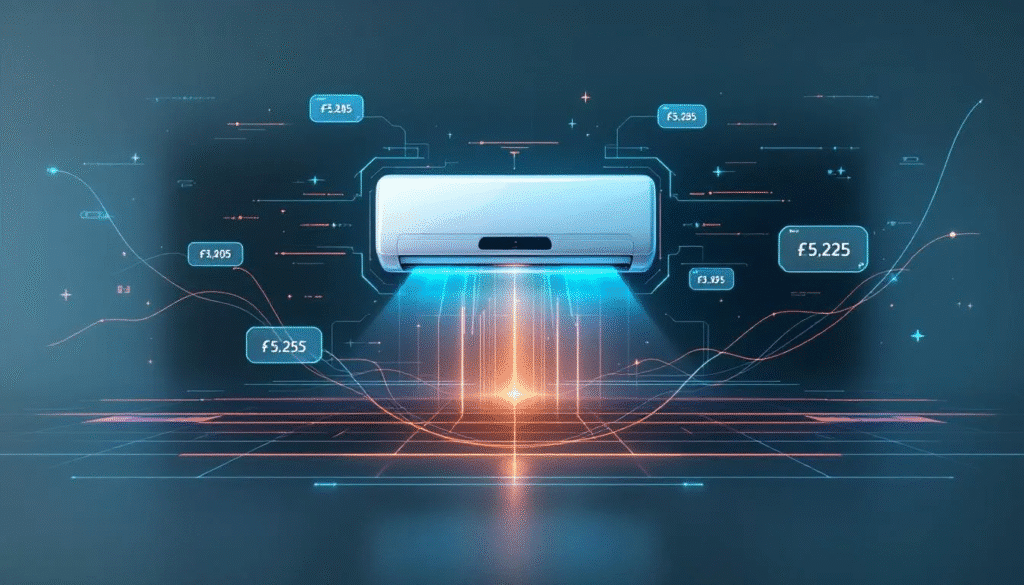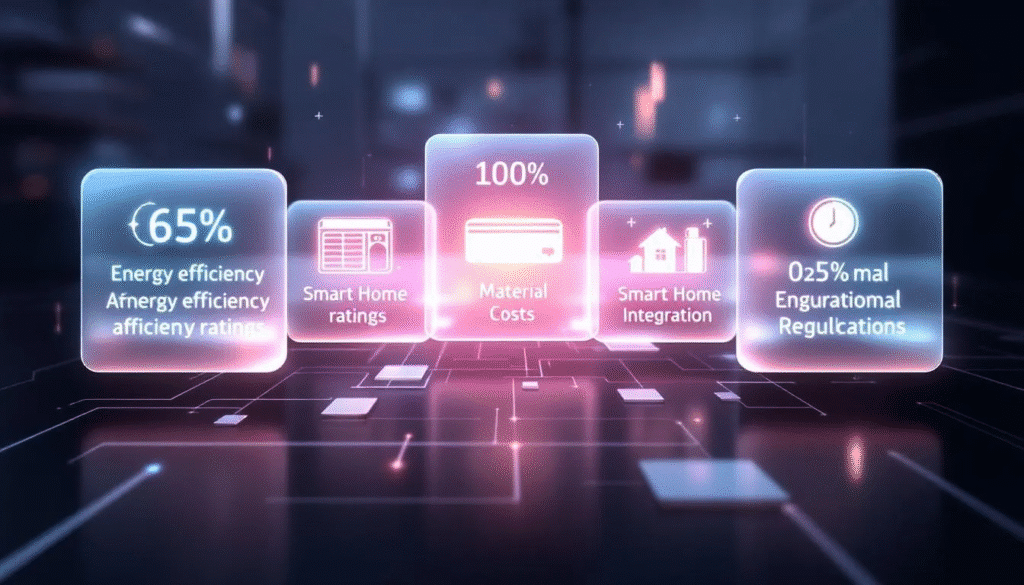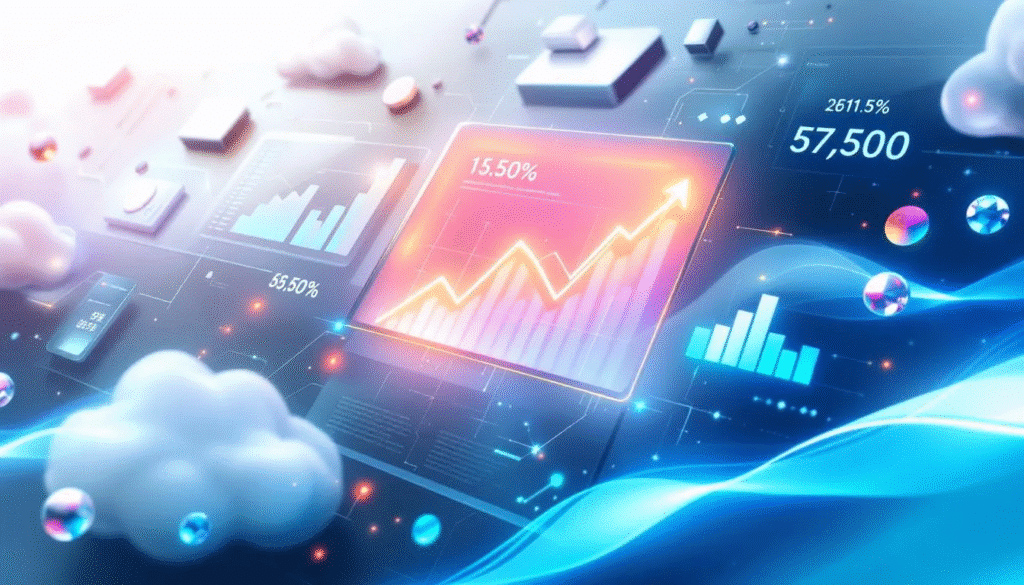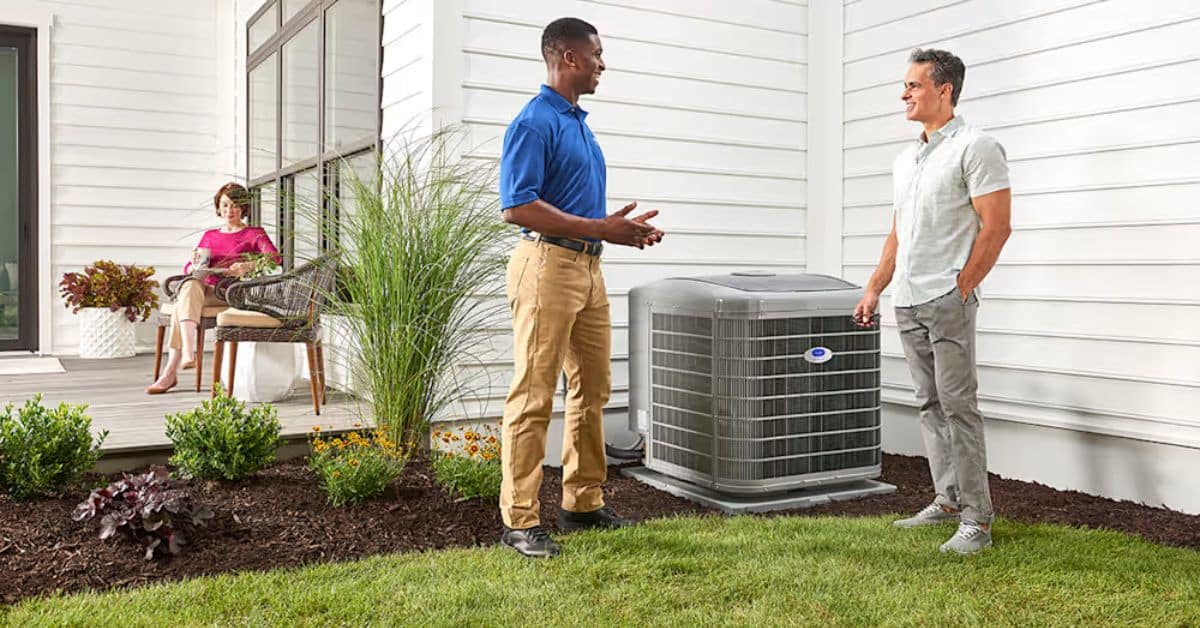Wondering how much the cost of an air conditioner in 2025 will be? Expect to pay between $3,000 and $20,000 depending on the type and efficiency. Our article details these costs and the factors influencing them, from new regulations to energy efficiencies.
Key Takeaways
- Replacing an air conditioner in 2025 can be expensive, with costs ranging from $150 for window units to $20,000 for central systems, influenced by type, size, and efficiency.
- Market conditions and new EPA regulations will likely increase HVAC system prices by 20-25%, making upfront costs higher for homeowners considering upgrades.
- Financial incentives like tax credits and local rebates can help lower the overall cost of installing energy-efficient air conditioning systems, making them more accessible.
Air Conditioner Replacement Costs in 2025

Replacing an air conditioner in 2025 can be a hefty investment, with prices for a complete central air system replacement, including ductwork, potentially reaching up to $20,000. Every homeowner considering an upgrade or replacement needs to understand these costs. With the rise of energy-efficient systems like Energy Star heat pumps, many are exploring alternatives to traditional central air conditioning.
Scheduling an in-home consultation with a professional is highly recommended to get the most accurate estimate. This allows for a tailored assessment based on your specific needs and home layout. The size and capacity of your air conditioning unit also play a significant role in cost, as larger units generally come with higher price tags. The unit’s efficiency and cooling capability also significantly impact the cost.
At Quality Heating, Cooling, Plumbing & Electric we have air conditioning comfort advisors who are ac experts with more than 20 years of experience in the HVAC industry. We have been doing this for over 64 years and understand the importance of your home comfort. We know how important it is to have a quality HVAC system that meets high-efficiency standards. We have the best trained HVAC technicians in SE Wisconsin with professional installers you can trust combined with the most reliable brands in the industry.
System Type and Cost Range
The type of HVAC system you choose greatly impacts the total cost. For instance:
- Replacing a window air conditioning unit can be relatively affordable, ranging from $150 to $800, especially if you’re handy with DIY installations.
- Entry-level air conditioners typically cost between $5,500 and $8,800.
- A split air conditioning system falls in the $2,000 to $3,000 range.
Central air conditioning units, a popular choice for many homeowners, generally range from $2,500 to $4,500. For those considering high-end air conditioners, the price can go up to $8,300 to $16,000. Additionally, replacing an air handler could set you back between $3,000 and $6,000, and geothermal or air-source heat pumps can range from $4,500 to $12,000.
Market Conditions Impact
Prices of air conditioning systems in 2025 are significantly influenced by market conditions and regulatory changes in the HVAC industry and the environment. New regulations from the EPA have led to rising prices for HVAC systems.
These regulatory changes, along with other factors, contribute to the overall increase in higher costs and additional costs for customers.
Factors Affecting AC Unit Prices

Several factors influence the total cost of replacing an air conditioning unit:
- The type of unit
- Its energy efficiency
- The condition of existing infrastructure
- Labor costs
- The size of your home
Higher efficiency requirements and the introduction of new refrigerants are expected to increase air conditioner prices in 2025.
The installation of filters, ductwork, and insulation can also significantly influence the overall cost, along with permit requirements and required inspections that vary by location.
Efficiency Standards
Energy-efficient systems often have higher upfront costs but result in lower long-term operating expenses. Higher SEER ratings usually mean higher initial costs but offer savings over time through reduced energy efficient system bills.
From 2025, split system air conditioners must have a SEER2 rating of at least 17.0 to qualify for federal tax credits.
Required Modifications
Upgrading to a new air conditioning system often requires modifications to your current setup. Replacing ductwork can range from $1,250 to $16,000, depending on various factors. Electrical adjustments might also be necessary, adding between $100 and $600 to the overall cost.
Modifications ensure the new system operates efficiently and effectively.
Labor Costs
Labor costs, which vary based on season and location, are a significant component of the overall installation expenses for new air conditioning systems. The variable nature of these costs can impact budgeting.
During peak seasons, labor costs tend to be higher, while they are generally lower in the fall and early spring.
New Refrigerants and Their Impact on Costs

Transitioning to new refrigerants like R-454B and R-32 is expected to increase HVAC system costs due to advanced technology and manufacturing requirements. From 2025, R-410A will be phased out, resulting in limited availability of replacement parts for systems using this refrigerant. This shift aims to provide better environmental profiles than older options.
Repairing outdated systems that use phased-out refrigerants may become more costly over time as parts become scarce. Investing in a new system with modern refrigerants can be a wise long-term decision.
Environmental Benefits of New Refrigerants
Switching to refrigerants like R-454B and R-32 aims to minimize the environmental impact of HVAC systems. These new refrigerants significantly reduce the potential for global warming compared to older alternatives, making them a more eco-friendly choice for homeowners.
Increased Costs Due to New Standards
The new EPA rules are projected to increase air conditioner prices by 20-25%. Coupled with higher manufacturing costs and additional training requirements for technicians, these new air conditioner standards will contribute to the rise in HVAC system prices.
As a result, new HVAC systems will be more expensive than current models.
Additional Components and Accessories

Additional components and accessories can significantly affect the total replacement cost, along with costs associated with removing the old unit and its disposal. Carpentry, plumbing, and electrical work also contribute to the final cost of HVAC replacement or service. These factors include:
- Additional components and accessories
- Costs of removing the old unit
- Disposal costs
- Carpentry work
- Plumbing work
- Electrical work
Homeowners might need to hire additional professionals, such as plumbers or electricians, to ensure the new system operates smoothly. These additional services increase the total cost of installation.
Condensate Pumps
Condensate pumps, essential for effective moisture drainage from air conditioning systems, typically cost around $370, with replacement costs ranging from $250 to $440.
Thermostats and Controls
Advanced thermostats and control offer energy-saving features that reduce utility bills over time, providing energy usage insights that help homeowners identify opportunities to cut down on heating energy consumption.
Programmable thermostats, often included in HVAC estimates, enhance energy efficiency.
Permits and Inspections
Permits and inspections ensure compliance with local building regulations when installing a new HVAC system, and estimates for replacing air conditioners typically include these costs. Homeowners should confirm with their HVAC installer whether they will manage the necessary permits and inspection processes.
Financing Options for New HVAC Systems

To help manage the costs of new HVAC systems, various financing options are available, including pay partial payment with cash/check and balance with money financing to meet different budgets and lifestyles.
It’s crucial to compare interest rates, terms, and fees when choosing a financing option.
Contractor Financing Plans
Contractor financing plans offer various options to ease upfront costs, often including special payment options that make investing in a new HVAC system more affordable.
Home Equity Loans and HELOCs
Home equity loans and HELOCs often offer lower interest rates compared to unsecured financing options and can increase the value of your home.
A home equity loan provides a lump-sum payment with a fixed interest rate, repaid over a period of 5 to 30 years, while a HELOC functions like a credit card, allowing you to draw funds as needed.
Personal Loans and Credit Cards
Personal loans may be a good option if you don’t have much equity in your home, offering fixed monthly payments that help with budgeting for HVAC expenses.
Tax Credits and Rebates
Financial incentives, including federal and state tax credits, can help homeowners reduce the overall cost of new air conditioning systems.
Local utility rebates can further offset installation costs, making these investments more affordable.
Federal Tax Credits
Federal tax credits can provide significant savings for homeowners, offering up to $3,200 for energy-efficient improvements made between 2023 and 2032. Homeowners can receive a tax credit of 30% on eligible HVAC system costs, up to $600 per item.
Local Utility Rebates
Local utility rebates can further enhance affordability, helping reduce the upfront costs for energy-efficient systems and making them more access.
These incentives can be found through local electric companies or the DSIRE database.
Is It Time to Replace Your Current System?
Assessing your HVAC system’s condition and performance helps determine whether it needs replacement, and consulting with an HVAC expert can help you decide the best timing for a new purchase.
With the average cost of a new HVAC system around $7,000, financing options often become a consideration when deciding whether to replace your system.
Assessing System Age and Performance
Air conditioning systems generally need replacement at around 10-12 years of age. Frequent breakdowns and high energy bills can indicate that an older ac system is losing efficiency and should be evaluated for an ac replacement or a new ac unit replacement.
If your new unit is nearing 15 years old, it might be time to consider a replacement.
Repair vs. Replacement Costs
Consider the cumulative cost of repairs versus the investment in a new system in the long run when deciding between repair and replacement.
Credit cards can be advantageous for smaller HVAC repairs due to their flexible payment options.
Making an Informed Decision
Deciding whether to replace your HVAC system largely depends on its current performance and repair frequency. If it fails to cool your house effectively, it might be time for a replacement.
An HVAC professional can help you decide whether to buy now or wait for the 2025 refrigerant changes.
Getting Multiple Estimates
Gathering at least three estimates helps homeowners by:
- Accurately comparing pricing and services
- Providing a better understanding of market rates
- Identifying any significant price discrepancies that could indicate poor value.
Comparing multiple quotes ensures a well-informed decision and potential cost save for the company. Making this deal is the best decision for maximizing savings.
Evaluating Contractor Credentials
Reviewing the reputation and customer service ratings of HVAC contractors is crucial before making a decision. Obtaining references from previous clients and ensuring the contractor has the necessary licenses and insurance are key steps in selecting a reliable contractor.
These steps help ensure a successful installation and ongoing maintenance of your new HVAC system.
Summary
The cost of replacing an air conditioner in 2025 is influenced by various factors, including system type, market conditions, efficiency standards, and new refrigerants. Homeowners should consider the full scope of expenses, from the initial cost of the unit to additional components and labor costs. Financing options, tax credits, and local utility rebates can help make these investments more affordable.
Making an informed decision involves assessing the age and performance of your current system, comparing repair versus replacement costs, and obtaining multiple estimates. By carefully evaluating these factors and consulting with professionals, you can ensure that you choose the best HVAC system for your home, providing comfort and energy efficiency for years to come.
Frequently Asked Questions
How much does it cost to replace a central air conditioning system in 2025?
Replacing a central air conditioning system can cost up to $20,000, especially if you need to include ductwork. It’s definitely something to budget for if you’re planning an upgrade!
What are the benefits of using new refrigerants like R-454B and R-32?
Switching to new refrigerants like R-454B and R-32 helps reduce global warming potential, making them a more environmentally friendly choice. It’s a win-win for cooling systems and the planet!
What financing options are available for new HVAC systems?
You have several financing options for new HVAC systems, including contractor financing plans, home equity loans, HELOCs, personal loans, and credit cards. Pick the one that best fits your financial situation!
Are there any tax credits available for energy-efficient HVAC systems?
Absolutely! You can get tax credits of up to $3,200 for energy-efficient HVAC systems from 2023 to 2032. It’s a great way to save on both your taxes and energy bills!
How do I know if it’s time to replace my current HVAC system?
If your HVAC system is 10-12 years old, often breaks down, or has you paying sky-high energy bills, it’s definitely time to think about replacing it. Trust your instincts on this—it’s usually more cost-effective in the long run!




0 Comments